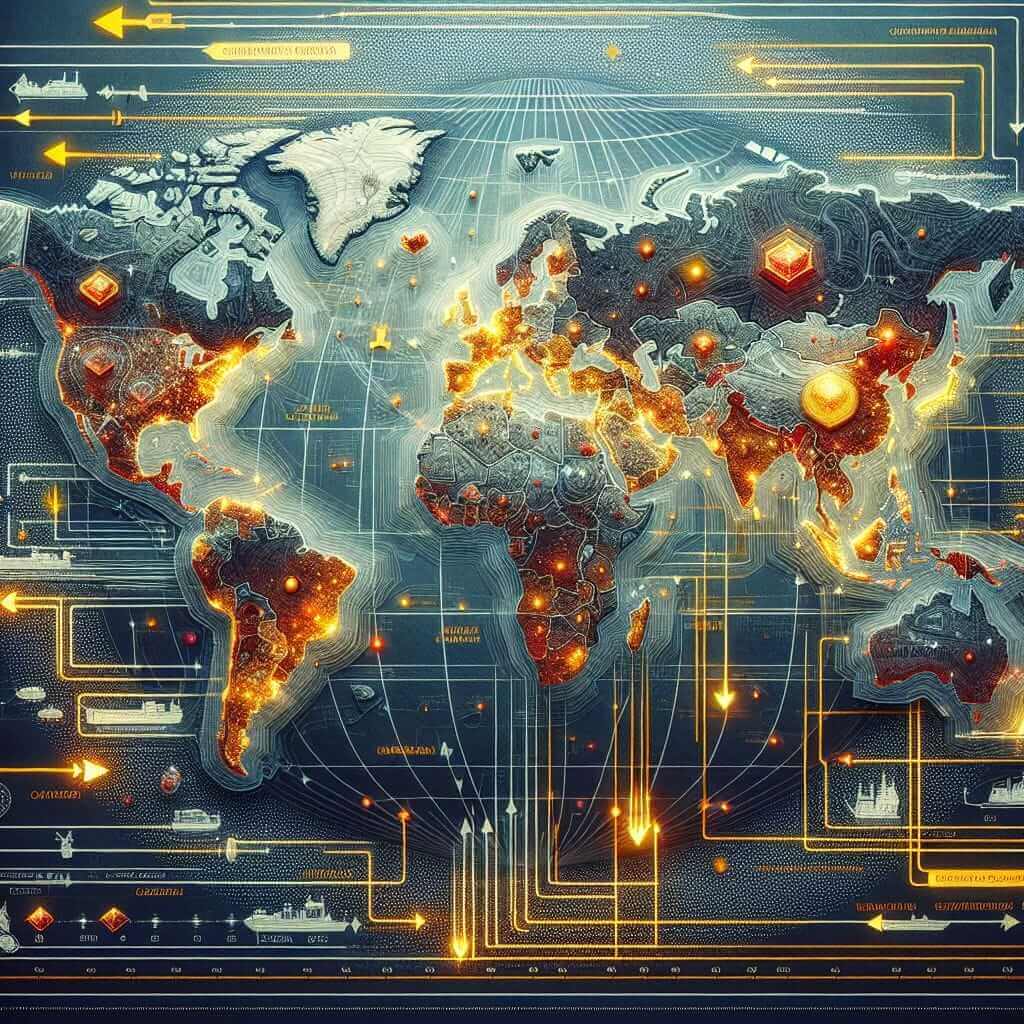The reliance on a handful of countries for rare earth elements (REEs) presents a critical vulnerability for industries ranging from technology to renewable energy. Consequently, the need to diversify REE sources frequently surfaces in IELTS Writing Task 2, prompting candidates to analyze the challenges and propose solutions. This essay explores potential IELTS prompts related to this topic, provides a sample band 8 response, and offers valuable insights into crafting a high-scoring essay.
Here are some potential IELTS Writing Task 2 questions related to this topic:
- The global demand for rare earth elements, crucial for various technologies, is heavily reliant on a few countries. To what extent do you agree or disagree that this dependency poses economic and political risks?
- Some argue that diversifying sources of rare earth elements is crucial for sustainable development. What are the main challenges in achieving this, and what measures can be taken to overcome them?
- The extraction and processing of rare earth elements have significant environmental impacts. Discuss the challenges of balancing economic development with environmental protection in this context.
Sample Essay: Diversifying REE Sources for Sustainable Development
Prompt: Some argue that diversifying sources of rare earth elements is crucial for sustainable development. What are the main challenges in achieving this, and what measures can be taken to overcome them?
Response:
The exponential growth of industries reliant on rare earth elements (REEs) has amplified concerns about the over-dependence on a limited number of suppliers. This dependence, some argue, not only threatens sustainable development by concentrating environmental burdens but also creates geopolitical vulnerabilities. While diversifying REE sources presents considerable challenges, a multi-pronged approach can mitigate these issues and pave the way for a more secure and sustainable future.
One primary challenge lies in the complex geology and high extraction costs associated with REE deposits. Unlike readily accessible resources, REEs often occur in small concentrations, necessitating extensive mining operations with significant financial investments. Moreover, processing these elements requires advanced technology and stringent environmental regulations, further increasing the overall expenses. This economic barrier discourages investment in nascent REE projects, particularly in countries lacking the necessary infrastructure and expertise.
Furthermore, geopolitical factors play a crucial role in hindering diversification efforts. The dominance of a few countries in the REE market stems not only from their resource abundance but also from their established infrastructure and processing capabilities. This monopoly grants them significant leverage in global trade and creates reluctance among other nations to invest in their own REE industries. Overcoming this geopolitical hurdle demands international collaboration, fostering knowledge sharing, and establishing transparent and equitable trade practices.
Addressing these challenges necessitates a combination of technological advancements, policy interventions, and international cooperation. Firstly, research and development should focus on developing more efficient and environmentally sound extraction and processing technologies. This includes exploring alternative sources of REEs, such as recycling electronic waste and recovering them from industrial byproducts. Secondly, governments must incentivize domestic REE production by providing financial assistance, streamlining regulations, and promoting research partnerships between academia and industry. Lastly, fostering multilateral agreements to ensure a fair and stable REE market is crucial. This involves promoting responsible sourcing practices, establishing strategic reserves, and encouraging technology transfer to developing countries.
In conclusion, while diversifying REE sources presents significant economic, technological, and geopolitical hurdles, a concerted effort involving technological innovation, supportive policies, and international collaboration can pave the way for a more sustainable and secure future. Failure to address this critical issue risks exacerbating existing inequalities and jeopardizing the advancements in technology and clean energy that rely on these essential elements. (Word count: 332)

Analysis and Tips
- Structure: The essay follows a clear structure, addressing all parts of the prompt. It presents a balanced discussion of the challenges and solutions related to diversifying REE sources.
- Vocabulary: The essay utilizes topic-specific vocabulary like “geopolitical vulnerabilities,” “nascent REE projects,” and “strategic reserves.” It demonstrates a strong command of academic language.
- Grammar and Coherence: The writing is grammatically accurate and uses a variety of sentence structures. Linking words and phrases ensure smooth transitions between ideas, enhancing coherence.
Useful Vocabulary:
- Rare Earth Elements (REEs) (n) /ˌreər ˌɜːrθ ˈɛləmənts/: a group of seventeen chemical elements
- Diversification (n) /daɪˌvɜːsɪfɪˈkeɪʃən/: the process of making something more diverse or varied
- Sustainable Development (n) /səˈsteɪnəbl dɪˈvɛləpmənt/: economic development that is conducted without depletion of natural resources
- Geopolitical (adj) /ˌdʒiːoʊpəˈlɪtɪkl/: relating to the influence of geographical factors on the politics and relations between countries
- Extraction (n) /ɪkˈstrækʃən/: the process of removing or obtaining something
- Infrastructure (n) /ˈɪnfrəˌstrʌktʃər/: the basic physical and organizational structures and facilities (e.g., buildings, roads, power supplies) needed for the operation of a society or enterprise
- Incentivize (v) /ɪnˈsɛntɪvaɪz/: to motivate or encourage someone to do something
- Multilateral (adj) /ˌmʌltiˈlætərəl/: agreed upon or participated in by three or more parties, especially the governments of different countries
- Strategic Reserves (n) /strəˈtiːdʒɪk rɪˈzɜːrvz/: stockpiles of important resources, like oil or minerals, held by a government for use in emergencies or times of shortage
- Technology Transfer (n) /tɛkˈnɒlədʒi ˈtrænsfɜːr/: the transfer of new technology from the originator to a secondary user, especially from developed to less developed countries
Conclusion
The diversification of REE sources represents a complex yet crucial issue with far-reaching implications for sustainable development. Mastering the vocabulary and understanding the multifaceted challenges associated with this topic will equip IELTS test-takers with the tools needed to construct well-informed and articulate responses. Remember to practice writing essays on similar themes, focusing on developing clear arguments, utilizing relevant vocabulary, and demonstrating a strong command of grammar and structure.